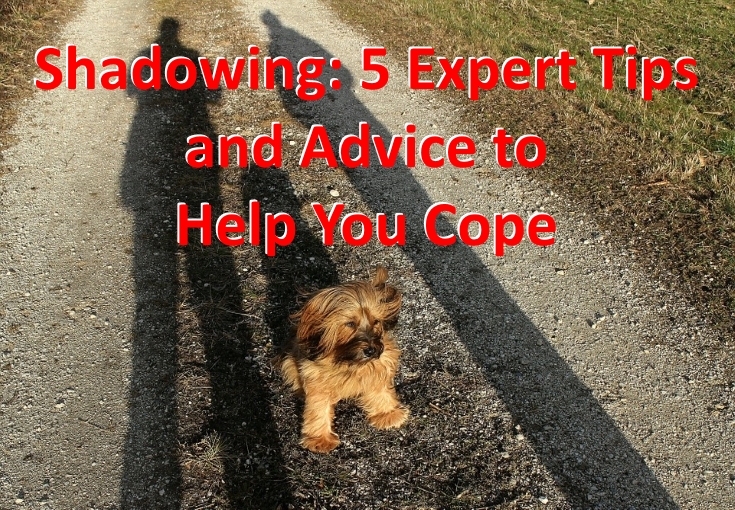
Contributing Writer: Christy Turner, founder of Dementia Sherpa
You may have never heard of shadowing, but if you’ve experienced it, you know exactly what it is. And chances are, it’s getting on your last nerve.
For those who are unfamiliar, shadowing is when your loved one living with dementia follows you around the house, room to room, apparently unaware of your personal space boundaries. In other words, your loved one becomes your shadow.
As with any other type of dementia-related “behavior,” or as I like to call it (because it’s more accurate), “communication you don’t enjoy,” it’s important to figure out the why of the communication in order to effectively address it.
People living with dementia reach a point in the disease process when they become unclear on what comes next in any given moment. This is typically when they start shadowing their care partners.
Because your loved one doesn’t know what comes next, or what to do, or where to go, it only makes sense that they’ll look to you for guidance.
Another key piece of this phase is high anxiety. When we put ourselves in our loved one’s place, this makes perfect sense, right?
If we weren’t sure where to go or what to do or how to do something or what we were supposed to be doing, we’d be anxious, too. And of course we’d seek out the people closest to us for reassurance.
Put another way, Grandpa isn’t following you around trying to annoy you. No, Grandpa’s following you around because he knows he feels safe with you, that you somehow manage to magically make everything seem okay.
Of course, our knee-jerk reaction can be one of annoyance; it’s disconcerting to be followed around so closely. But think of what a compliment you’re getting here.
Think, too, of how terrifying it must be for your loved one right now.
Not able to hold on to a thought long enough to carry it through to a meaningful action; not feeling certain or sure of things that were once taken for granted; carrying high anxiety inside his body, 24/7.
Here are 5 concrete things you can do when your person is shadowing:
1. Use your super power first. Step into the moment with your person to offer love and reassurance. This is the quickest way to reduce anxiety.
2. Engagement is key. Your person is showing you she has energy to use. Engage now and have a great day…or continue on as usual until “sundowning” (aka “communication you really don’t enjoy”) shows up later in the day.
3. Engage along with your person. Setting up for independent activities like turning on a movie is very unlikely to work.
Your person needs visual cues at this point to understand instructions or how-to, e.g., you hand him a towel, and then you fold together.
4. Consider a day program. Socialization opportunities for your person–as well as structure and engagement–plus a break for you equals a winning combination. Even if it’s only one half day a week.
5. As with anything else, shadowing is easier to manage if you can prevent it before it starts. A good way to do that is build structure, routine, and exercise into the day. This is likelier to result in a smooth afternoon and evening–and a better night’s sleep–for both of you.
Need ideas on how to keep your person engaged during the day? Sign up for Christy’s free email class. You’ll gain valuable insight, plus ideas you can start using right away.
 About the Author: Christy Turner is the founder of Dementia Sherpa. She’s helped over 1123 through the rough terrain that is dementia.
About the Author: Christy Turner is the founder of Dementia Sherpa. She’s helped over 1123 through the rough terrain that is dementia.
Be sure to visit her site, and learn more about her and her great resources at DementiaSherpa.com.
Follow on Facebook, Google+, Instagram, Pinterest, Twitter, and YouTube. Content varies across platforms.
If you like what you’ve read, why not receive periodic updates when you:
Subscribe to the TinT Newsletter
Have you experienced shadowing from your loved one? Please share your experience or questions in the comments below:





Leave a Reply